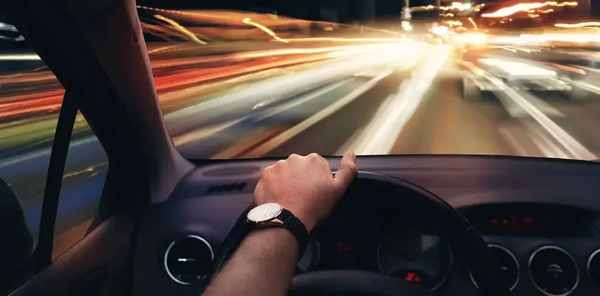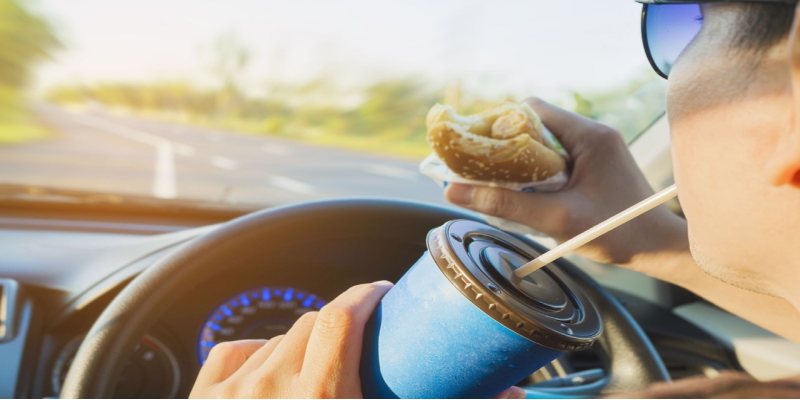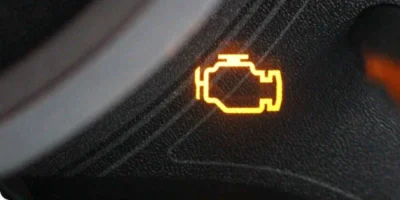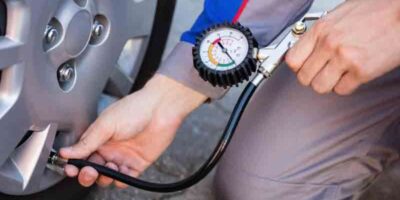This guide outlines the difference between reckless driving and negligent driving, and what you can do to make the roads safer.
Driving safely in traffic is everyone’s responsibility, from pedestrians to drivers. Even more so if they are from corporate vehicles, because in addition to spending a lot of time on the streets, their behavior directly influences the company’s profitability and the image it has in society. Not to mention the direct expenses with repairs and compensation that can arise from accidents.
Not only that: people’s own health can be compromised if basic traffic safety rules are not followed. For these reasons, it is important that drivers are warned about the need to maintain a defensive posture while driving, taking care that their actions do not cause accidents and anticipating dangers.
Both reckless and negligent driving can result in damages and injuries. If there are similar damages to property or injuries, you could be wondering the difference between reckless and negligent driving. Each state has its own rules when it comes to penalties. Reckless driving tends to have worse consequences in many areas. Negligent driving is usually considered a civil traffic offense, but reckless driving can also be considered a crime.
Reckless driving

Reckless driving is unsafe and unlawful driving with a disregard for the safety of other people on the road, including both motorists and pedestrians. Those who engage in reckless driving know about the risk involved with their actions but still, continue to drive in this dangerous manner. A reckless driver has taken the unnecessary risk but does so in an area where there is a high chance of damages or injury.
Since reckless driving involves the intention and willfulness of the driver, it is typically considered a criminal activity. Examples of reckless driving include driving under the influence, not using turn signals when changing lanes or turning, racing on a public road, failing to turn on lights when driving at night, talking or texting on the phone, refusing to stop at red lights, or stop signs, and driving well above the posted speed limit.
9 things your dad didn’t teach you about driving
Negligent driving
Negligence happens when drivers don’t use reasonable care when operating a motor vehicle, which leads to damages or personal injuries. When driving, an individual has a legal obligation to act in a certain way that is dictated by the law. When this driver breaches that duty by acting in a way that is dangerous or fails to act at, it is considered negligence.
Unlike reckless drivers, those who are being negligent don’t know about the risk associated with their behavior. This is why negligent driving doesn’t usually have the same consequences and instead is classified as a traffic infraction.
Some examples of negligent driving include driving on private property without the owner’s consent, unintentionally failing to provide a safe environment for pedestrians or other drivers, and incidents where the term accident is used to describe the event.
Safety eips and consequences
Penalties for reckless and negligent driving are going to vary by location but can include suspension of a driver’s license, fines, or imprisonment depending on the severity of the event. Since reckless driving is more serious, the consequences associated are higher.
There are a number of ways to avoid both negligent and reckless driving to not only keep yourself safe but also, fellow pedestrians and motorists. Be sure to allow plenty of time to get to your location.
This will help you avoid overall aggressive driving, such as changing lanes too quickly and speeding. If you need contact lenses or glasses to see clearly, especially at night, always wear them. Avoid any distracted driving, such as talking on the phone, eating, messing with the radio, or texting.
When you are engaged in these activities, it’s easier to run traffic signs or lights, swerve, and speed. Never drive under the influence. Always have a designated driver or use rideshare services or a taxi. Any conviction related to DUI can lead to jail time and license suspension.
Traffic laws, at first glance, may seem like a bunch of bureaucratic rules, difficult to navigate. However, they are very important to bring safety to the streets and roads.
Traffic accidents already represent the eighth leading cause of death and most victims come from recklessness and disregard for current legislation. Due to the proportion of this theme, traffic laws are extremely necessary to try to reduce the number of accidents and imprudence.
In addition, legislation is the work tool of inspectors (public agents, police, etc.). Without them, it would not be possible to demand compliance with safety parameters.
There are numerous traffic regulations that affect drivers. After all, the traffic code is also aimed at its regulation and protection. However, there are some rules directly linked to drivers that need more attention. Below, we list some of the most important road safety tips :
- seat belt use : driving without the device, both for the driver and passengers, results in a serious fine in some states.
- not providing assistance : failing to attend to victims of an accident caused by the driver is a serious infraction.
- driving without a license : driving the vehicle without a license, having the physical document, having the license revoked or the license expired is a very serious fine. .
- disrespecting the speed limit : exceeding the maximum allowed on the road is also a serious fine. The measure is regulated.
- driving without glasses and other aids : if you need glasses, prostheses, hearing aids and others to be able to drive, you must always travel with them. In addition to the risk that the lack of them can bring to driving, this can also generate a very serious fine.
- driving under the influence of alcohol : driving a vehicle under the influence of alcohol is one of the greatest imprudence that a driver can commit. The driver does not necessarily need to be intoxicated to suffer the consequences, it is enough that the presence of alcohol in his body is verified.
- transporting children without a car seat : taking the little ones without observing the safety measures in force also causes a very serious fine.
Both negligent and reckless driving are not things to take lightly. If you have been a victim of either reckless or negligent driving, you should speak with a lawyer to be fairly compensated for damages and injuries. If you have been accused of either negligent or reckless driving, you may also need to speak with a lawyer if you are choosing to fight the charge in order to avoid severe penalties. Also read: what do warning lights on a dashboard mean?




